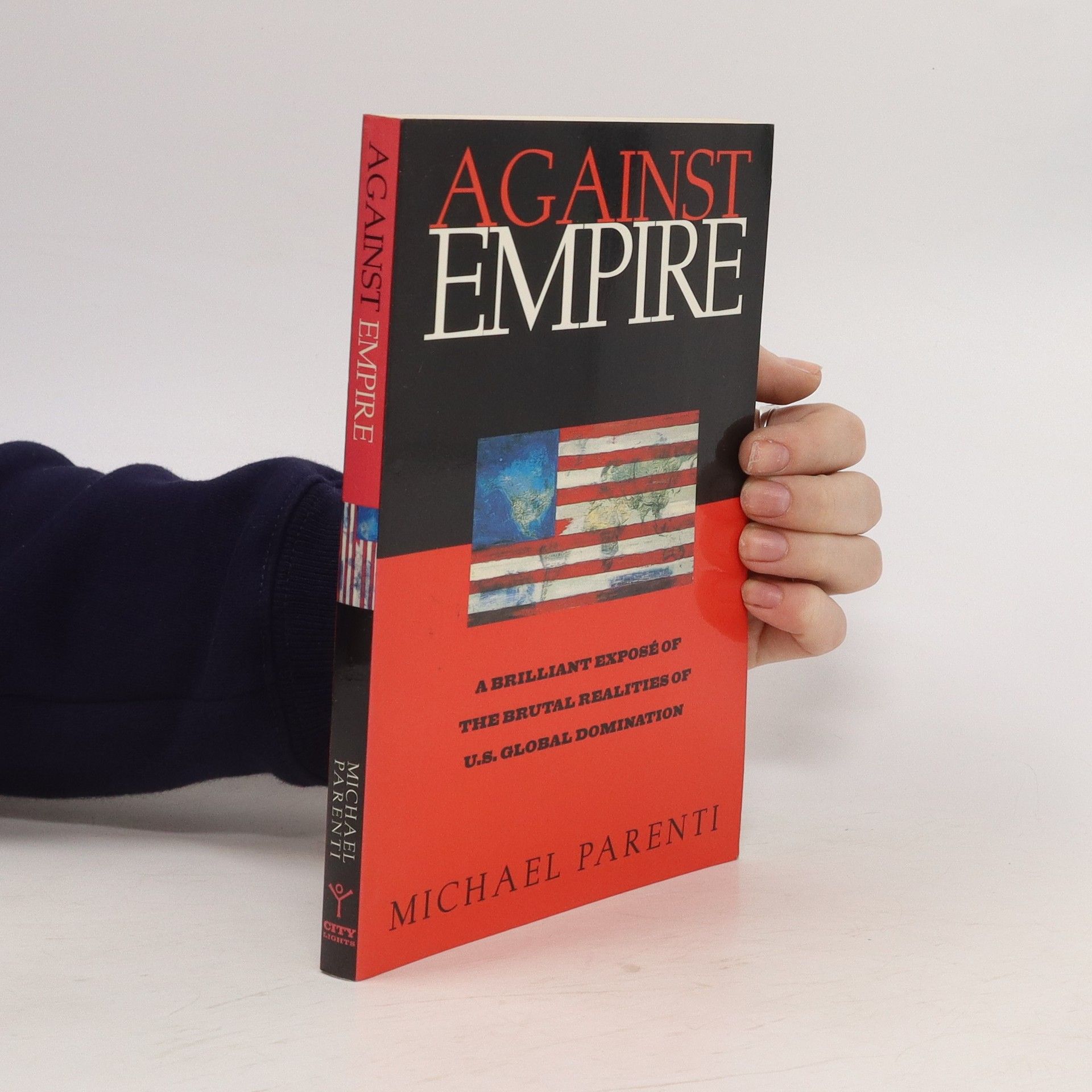Il terrorismo degli Stati Uniti contro Cuba
- 266pagine
- 10 ore di lettura
Michael Parenti è uno scienziato politico, storico e critico culturale americano. È noto soprattutto per le sue critiche al capitalismo e alla politica estera americana. Il suo lavoro si concentra sullo svelare le strutture di potere nascoste e le manipolazioni ideologiche che plasmano la società. Le analisi di Parenti offrono una visione penetrante del funzionamento del potere e del suo impatto globale.







The book offers a critical examination of imperialism, linking the economic crisis in the United States to its military interventions around the world. It provides a bold and unflinching analysis of contemporary US imperial power, challenging conventional narratives and revealing the interconnectedness of domestic and global issues.
Parenti shows how "rational fascism" renders service to capitalism, how corporate power undermines democracy, and how revolutions are a mass empowerment against the forces of exploitative privilege. He also maps out the external and internal forces that destroyed communism, and the disastrous impact of the "free-market" victory on Eastern Europe and the former Soviet Union.
The book delves into the U.S. empire's aggressive strategies and the underlying motives behind its foreign interventions. It highlights the deceptive narratives employed to rationalize violence and economic exploitation, illustrating how the shift to a global economy favors financial interests over democratic values. Through compelling arguments, the author reveals the detrimental impacts of these policies on both international relations and local populations.
For 78 days in 1999, US and NATO forces launched round-the-clock aerial attacks against Yugoslavia, killing upwards of 3000 people in the name of humanitarianism. This book challenges mainstream media coverage of the war and uncovers hidden agendas behind Western talk and a decade-long disinformation campaign waged by western leaders.
Most historians, both ancient and modern, have viewed the Late Republic of Rome through the eyes of its rich nobility. In The Assassination of Julius Caesar, Michael Parenti presents us with a story of popular resistance against entrenched power and wealth. As he carefully weighs the evidence concerning the murder of Caesar, Parenti sketches in the background to the crime with fascinating detail about wider Roman society. The result is an entirely new perspective on a much-studied era.
Political essays and poems. In Young People Are Different, he writes: "Hostage in their homes, / kept alive by the telephone / fully animated only when taking flight / in rough formation. / They rebel / so better to submit / to their totalitarian peerage."
Profit Pathology explores the stark contrasts in contemporary economic life, addressing issues such as market crises, wealth disparities, homelessness, and environmental degradation. The book critiques the systemic failures that lead to these injustices, advocating for a deeper understanding of economic practices that prioritize profit over societal well-being. Through its analysis, it aims to illuminate the path toward a more equitable and sustainable economic future.
"History as Mystery pursues themes ranging from antiquity to modern times, from the Inquisition and Joan of Arc to the anti-labor bias of present-day history textbooks. Parenti challenges the image of early Christianity as a movement for the poor and a beacon of light in the Dark Ages. He unmasks the Church's support of slavery and serfdom, its suppression of learning and culture, and its oppression of heretics, women, and Jews."--BOOK JACKET.
Focusing on the tension between economic and political power, this book offers a critical analysis of American government, highlighting how corporate oligopolies undermine democracy. It examines the struggles of popular movements against systemic violations, revealing the complexities of government practices, including conspiracies and propaganda. Through this lens, the work provides a unique perspective on the realities of governance in the U.S. and the ongoing fight for democratic integrity.